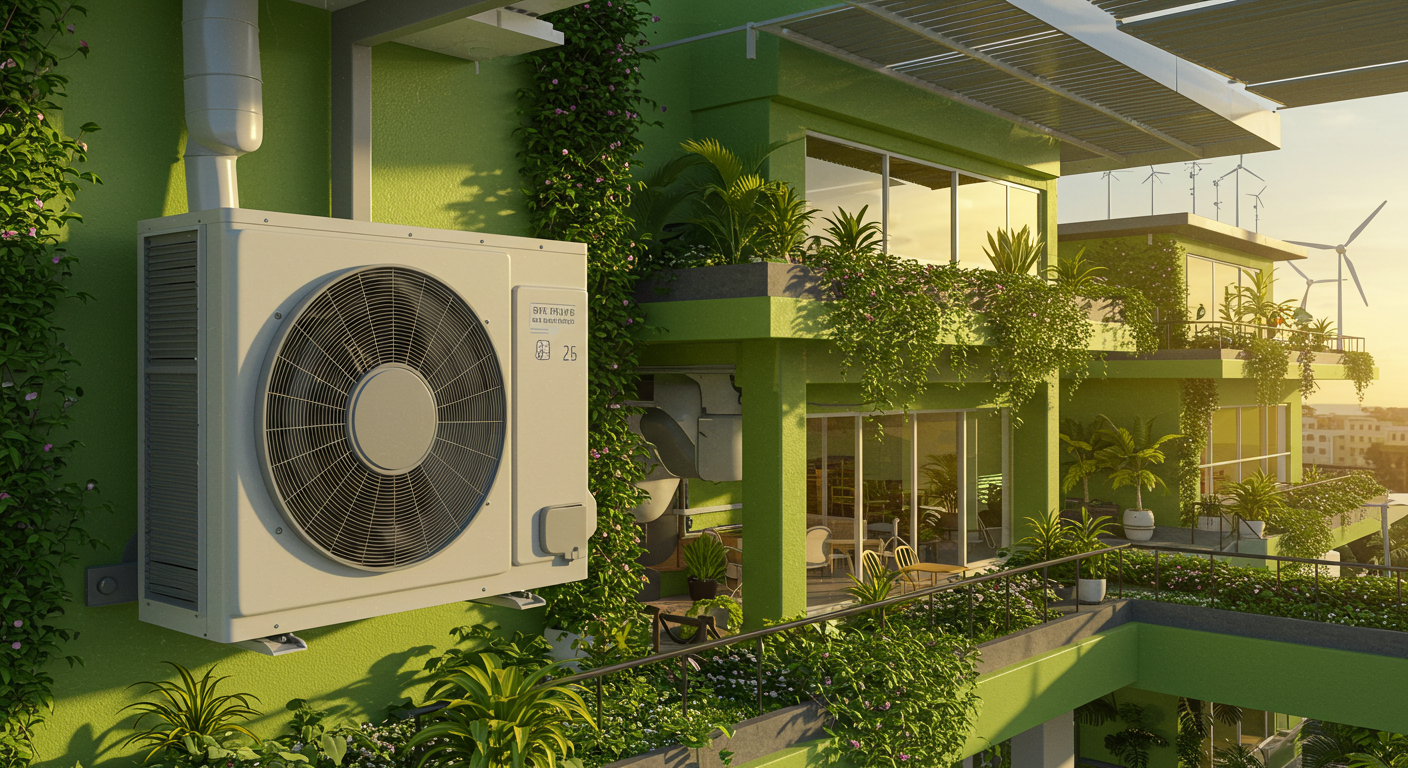
The Role of Geothermal in Sustainable HVAC Systems
As we advance into an era of heightened environmental awareness, geothermal HVAC systems are paving the way for a more sustainable and energy-efficient future. By harnessing the Earth’s stable subsurface temperature, these systems offer an innovative solution to reduce greenhouse gas emissions and energy consumption. In this article, we’ll explore the significant role of geothermal systems in creating eco-friendly HVAC solutions and how they contribute to the growing demand for renewable energy HVAC technologies.
Understanding Geothermal Heating and Cooling
Geothermal heat pumps utilize the Earth’s constant underground temperature, typically ranging from 50-60°F, to provide efficient heating and cooling. This approach can dramatically decrease greenhouse gas emissions by up to 70% compared to conventional systems. With the ability to achieve an Energy Efficiency Ratio (EER) greater than 5, geothermal HVAC systems are not only sustainable but also economically beneficial, offering homeowners up to 50% savings on annual heating and cooling costs.
The Growing Market for Geothermal Heat Pumps
The geothermal heat pump market is experiencing significant growth, projected to reach $20.64 billion by 2032 from $12.14 billion in 2024, with a CAGR of 6.9%. Currently, over 1.5 million geothermal systems are installed across the United States, with an expected 500,000 new installations annually by 2025. Closed-loop systems currently hold the largest market share, while open-loop systems are anticipated to grow rapidly through 2032.
Applications and Benefits in Various Sectors
The residential sector accounted for the largest share (45.4%) of geothermal heat pump demand in 2024, while the commercial sector is witnessing the fastest growth. Geothermal systems are increasingly integrated with solar PV and energy storage to enhance energy resilience and support net-zero building initiatives. Additionally, the Asia Pacific region, particularly China, is experiencing rapid growth due to urbanization and government-backed green technology programs.
- Reduces greenhouse gas emissions by up to 70%.
- Offers up to 50% savings on annual heating and cooling costs.
- Supports net-zero building initiatives with integration options.
- High compatibility with both new constructions and retrofits.
- Significant market growth, especially in Asia Pacific regions.
Conclusion
Geothermal HVAC systems stand out as a leading technology in the pursuit of sustainable and energy-efficient solutions. By utilizing the Earth’s natural thermal properties, these systems not only reduce environmental impact but also offer substantial economic benefits. As we move toward a greener future, geothermal heating and cooling remain pivotal in advancing HVAC sustainability.
Ready to explore green HVAC solutions for your home or business? Consider the benefits of geothermal systems and take a step towards a more sustainable future.
FAQs About Geothermal HVAC Systems
What are the benefits of geothermal HVAC systems?
Geothermal systems offer numerous benefits including reduced greenhouse gas emissions, significant energy savings, and compatibility with renewable energy sources.
How do geothermal heat pumps work?
These pumps leverage the Earth’s stable underground temperature to provide heating and cooling, resulting in high efficiency and low environmental impact.
Are geothermal systems cost-effective?
Yes, while the initial installation cost may be higher, geothermal systems can lead to up to 50% savings on heating and cooling costs annually.
Can geothermal systems be used in both residential and commercial buildings?
Absolutely! Geothermal systems are suitable for various applications, including residential, commercial, and even industrial environments.
Is the geothermal HVAC market growing?
Yes, the market is rapidly expanding with projections indicating significant growth, particularly in the Asia Pacific region.

